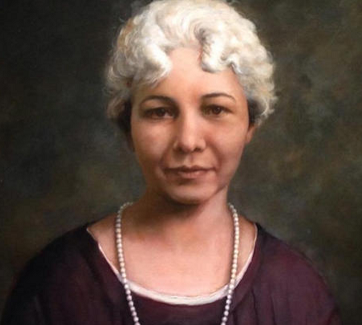
- Details
- By Neely Bardwell
Senators Gary Peters (D-MI) and Debbie Stabenow (D-MI) recently introduced legislation that would name Baraga County Post Office after Cora Reynolds (Keweenaw Bay Indian Community), the first woman elected to the Michigan House of Representatives. She was a Republican.
Cora Reynolds was an Ojibwe woman, who was born on the L’Anse Reservation. She ran unopposed when the State House seat that represented Baraga, Keweenaw, Ontonagon, and Iron counties was vacant. She was elected in 1925 and was the first Native American woman to serve in any state legislature.
She only served one term before the district she represented was eliminated in redistricting. During that time, she advocated for various public health matters like combating alcoholism and tuberculosis epidemics. She also advocated for the recognition of Native fishing rights in the state of Michigan.
Cora Reynolds was an active member of the community well before she was elected to the Michigan House of Representatives. With tuberculosis and alcoholism being two her main concerns, she organized the first public health service in Baraga County. This brought the first public health nurse to the area.
She and her husband were also strong advocates of prohibition, and they worked to establish prohibition in the area well before it was established nationally.
She was also active in the Grange–one of the first organizations to allow men and women equal voices and a strong voice in the political sphere.
Reynold died in 1950. In 2001, she was inducted into the Michigan Women's Hall of Fame
Senator Peters and Senator Stabenow both released statements:
“Cora Reynolds Anderson was a dedicated public servant who worked tirelessly to improve the lives of Michiganders across the Upper Peninsula – including by bolstering public health in Baraga by helping to secure the county’s first public health service,” said Senator Peters. “Naming this post office after this prolific trailblazer – in the county she represented – will help honor her legacy as a devoted educator and legislator.”
“Cora Reynolds Anderson is such an important part of Michigan’s history. As the first woman elected to the Michigan House of Representatives – and the first Native American woman to serve in any state legislature – she paved the way for so many women, including me, to hold public office. Naming this post office in the county she represented after her is one special way that Michiganders can honor and remember her for generations to come,” said Senator Stabenow.
More Stories Like This
Native News Weekly (August 25, 2024): D.C. BriefsNavajo Nation Mourns the Passing of Former Vice President Rex Lee Jim
Deb Haaland Earns Endorsement From Communications Workers of America Local 7076
University Soccer Standout Leads by Example
Two Native Americans Named to Democratic Congressional Campaign Committee's“Red to Blue” Program
Help us defend tribal sovereignty.
At Native News Online, our mission is rooted in telling the stories that strengthen sovereignty and uplift Indigenous voices — not just at year’s end, but every single day.
Because of your generosity last year, we were able to keep our reporters on the ground in tribal communities, at national gatherings and in the halls of Congress — covering the issues that matter most to Indian Country: sovereignty, culture, education, health and economic opportunity.
That support sustained us through a tough year in 2025. Now, as we look to the year ahead, we need your help right now to ensure warrior journalism remains strong — reporting that defends tribal sovereignty, amplifies Native truth, and holds power accountable.
 The stakes couldn't be higher. Your support keeps Native voices heard, Native stories told and Native sovereignty defended.
The stakes couldn't be higher. Your support keeps Native voices heard, Native stories told and Native sovereignty defended.
Stand with Warrior Journalism today.
Levi Rickert (Potawatomi), Editor & Publisher


